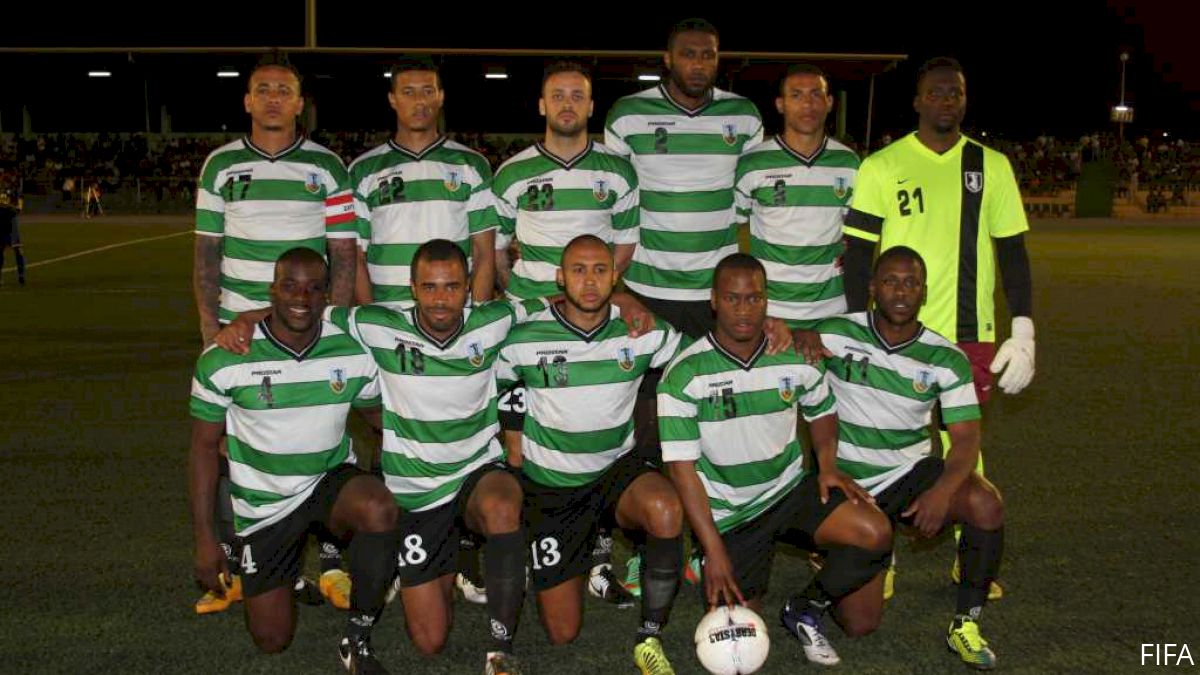Montserrat Represents The Magic Of Concacaf Nations League
Montserrat Represents The Magic Of Concacaf Nations League
The national team of Montserrat is a perfect example of what the Concacaf Nations League set out to do and how it’s supposed to work.

You can be forgiven for not knowing much about Montserrat.
The population currently is around 5,000 people with the number trending upward since volcanic activity in the mid-90s forced the majority of the population to move elsewhere and left a historic low of fewer than 1,200 people on the island in 1997.
The national team is a perfect example of what the Concacaf Nations League set out to do and how it’s supposed to work.
First off, the competition is making the national team play games. Too often in previous cycles, teams were playing every four years, getting eliminated from World Cup qualification and not playing again until Caribbean Championship qualification and once again getting bounced.
At one point Montserrat was dead last in the FIFA rankings, and it took a full 16 years after becoming a FIFA member for the British Overseas Territory to find its first-ever win in official competition.
The Nations League changes things, though. Last March, Concacaf performed a draw to set up qualification to the Nations League proper, which will begin this fall.
Like other British territories, Montserrat started in Pot D because of a low spot in the Concacaf and ended up with a schedule made up of a team from each pot: El Salvador from Pot A, Belize from Pot B, Aruba from Pot C and the Cayman Islands, also in Pot D.
It looks like a deadly schedule, but something unexpected happened. Montserrat actually ended up being good. The FA appointed ex-Scotland international and former Everton assistant Willie Donachie as the manager, and he went to work researching which England-based players are eligible to suit up for the Emerald Boys.
The inclusion of those players has earned Montserrat coverage on both global and local BBC radio programs in addition to a mention in famed Spanish sports newspaper Marca. But it’s not simply a novelty. Donachie actually has been able to get results.
The world started to wake up to the fact that something could be happening in Montserrat when the team opened the scoring against heavy favorite El Salvador. Despite conceding an equalizer and a late winner to Oscar Ceren, it was clear Montserrat was no longer one of the worst teams in the world. Still, with one defeat and a -1 goal difference, the team still looked like it would be headed to League C, the lowest of the three leagues set to begin in September.
Hosting Belize, however, there was another strong showing in store. A goal from Spencer Weir-Daley was enough to give the home side the triumph at Blakes Estate Stadium, and Montserrat moved up the table into League B territory.
It solidified its position by going away for the first time in qualification and getting a 2-0 victory in Aruba. Those six points are good enough to put Montserrat, thought to be bound for the bottom of the table, solidly in the middle of the group ahead of its trip to face the Cayman Islands.
In theory, Montserrat still could end up in League A, facing the likes of the United States and Mexico and other teams automatically placed into the top grouping by virtue of qualifying to the previous World Cup Hex. In practice, getting the goal difference up high enough to land in League A—or even to qualify for the Gold Cup by making the top 10—is unlikely.
The nature of the Nations League, though, is that Montserrat could earn its way into League A by virtue of more good results. Win the four-team group in League B and this tiny territory with a smaller population than most suburbs would be fighting against nations with populations into the millions.
Such is the magic of the Nations League. It’s a tournament in which a nation can go from playing no games to putting together a stronger-than-expected team and start to fight against some of the top nations in the region. Can they sustain the surprise success? Or is there another minnow about to wake up and take down a giant? We’ll have to watch and find out.
Jon Arnold is a journalist based in Texas who works as Goal's Concacaf correspondent and appears on the BBC World Football Phone-In. Follow him on Twitter.